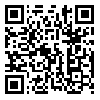BibTeX | RIS | EndNote | Medlars | ProCite | Reference Manager | RefWorks
Send citation to:
URL: http://journal.nkums.ac.ir/article-1-637-en.html

 , R Rajabzadeh
, R Rajabzadeh 
 , H Jajarmi
, H Jajarmi 
 , K Arzamani
, K Arzamani 
 , D Sarposhi
, D Sarposhi 
 , M Ahmadpour
, M Ahmadpour 
 , Z Marzi
, Z Marzi 
 , H Heshmati *1
, H Heshmati *1 

Background & Objectives : Leishmaniasis is endemic in 88 countries and 350 million people in world are at risk. According to importance of education in large population, this study was designed and done with the aim evaluating the effect of educational program based on BASNEF model on Volunteer Health Workers (VHWs) on Preventive behaviors among families under supported of VHWs.
Material & Methods: In this Quasi-Exprimental study, 60 VHWs and 120 households that were resident in endemic area of CL in Jajarm city in 2013 were selected through multi stage sampling method. Intervention was done based on BASNEF model. Data were collected before educational intervention and 3 months after educational intervention using reliable and valid questionnaire. Data were analyzed using SPSS16 software and chi-square, t paired-Test, independent t-test, Mann-whitney and Wilcoxon.
Results: The mean score of knowledge, attitude, behavioral intention, enabling factors, behaviors and influence of subjective norms after educational intervention in households in experimental were significantly increased (P<0.05) while the changes in control group were not significant.
Conclusions: This educational program led to educational behaviors in VHWs and change in preventive behaviors among families. So we recommended BASNEF model was used in planning educational programs in related to educating families about cutaneous leishmaniasis.
Keywords: BASNEF Model, Volunteer Health Workers, Educational Intervention, Cutaneous Leishmaniasis
Received: 2015/12/26 | Accepted: 2015/12/26 | Published: 2015/12/26
| Rights and permissions | |
 |
This work is licensed under a Creative Commons Attribution-NonCommercial 4.0 International License. |



